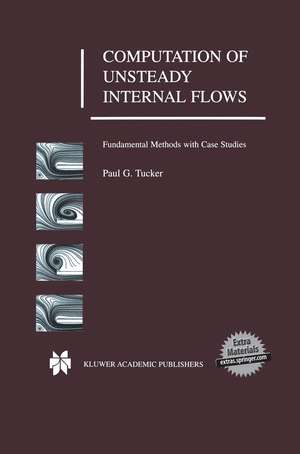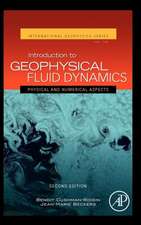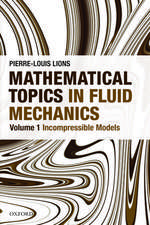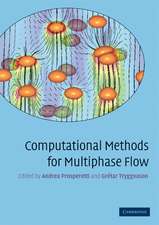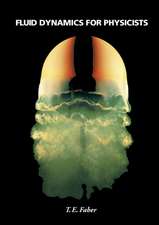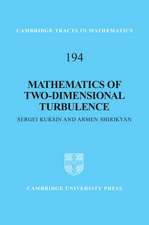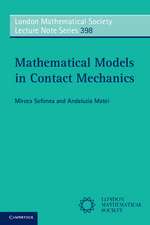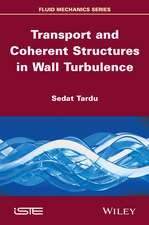Computation of Unsteady Internal Flows: Fundamental Methods with Case Studies
Autor Paul G. Tuckeren Limba Engleză Paperback – 18 apr 2013
Features of Computation of Unsteady Internal Flows:
| Toate formatele și edițiile | Preț | Express |
|---|---|---|
| Paperback (1) | 948.29 lei 6-8 săpt. | |
| Springer Us – 18 apr 2013 | 948.29 lei 6-8 săpt. | |
| Hardback (1) | 954.62 lei 6-8 săpt. | |
| Springer Us – 30 mai 2001 | 954.62 lei 6-8 săpt. |
Preț: 948.29 lei
Preț vechi: 1156.45 lei
-18% Nou
Puncte Express: 1422
Preț estimativ în valută:
181.46€ • 194.04$ • 151.29£
181.46€ • 194.04$ • 151.29£
Carte tipărită la comandă
Livrare economică 18 aprilie-02 mai
Preluare comenzi: 021 569.72.76
Specificații
ISBN-13: 9781461355540
ISBN-10: 1461355540
Pagini: 376
Ilustrații: XVIII, 355 p.
Dimensiuni: 155 x 235 x 20 mm
Greutate: 0.53 kg
Ediția:Softcover reprint of the original 1st ed. 2001
Editura: Springer Us
Colecția Springer
Locul publicării:New York, NY, United States
ISBN-10: 1461355540
Pagini: 376
Ilustrații: XVIII, 355 p.
Dimensiuni: 155 x 235 x 20 mm
Greutate: 0.53 kg
Ediția:Softcover reprint of the original 1st ed. 2001
Editura: Springer Us
Colecția Springer
Locul publicării:New York, NY, United States
Public țintă
ResearchDescriere
Computation of Unsteady Internal Flows provides an in-depth understanding of unsteady flow modeling and algorithms. This understanding enables suitable algorithms and approaches for particular fields of application to be selected. In addition, the understanding of the behavior of algorithms gained allows practitioners to use them more safely in existing codes, enabling meaningful results to be produced more economically.
Features of Computation of Unsteady Internal Flows:Specialized unsteady flow modeling algorithms, their traits, and practical tips relating to their use are presented. Case studies considering complex, practically significant problems are given. Source code and set-up files are included. Intended to be of a tutorial nature, these enable the reader to reproduce and extend case studies and to further explore algorithm performances. Mathematical derivations are used in a fashion that illuminates understanding of the physical implications of different numerical schemes. Physically intuitive mathematical concepts are used. New material on adaptive time stepping is included. £/LIST£ Audience: Researchers in both the academic and industrial areas who wish to gain in-depth knowledge of unsteady flow modeling will find Computation of Unsteady Internal Flows invaluable. It can also be used as a text in courses centered on computational fluid dynamics.
Features of Computation of Unsteady Internal Flows:
Cuprins
Preface. Nomenclature. 1. Introduction. 2. Overview of Elementary Temporal Discretizations. 3. Temporal and Spatial Discretization Relationships. 4. Solver Algorithms and General Solution Procedures. 5. Solution Adapted Time-Steps. 6. Turbulence Modelling. 7. Cyclic Annular Cavity Flows. 8. Cyclic Aero Engine Motivated Cavity Flows. 9. Cyclic Moving Boundary Flows. 10. Cyclic Complex System Flow. 11. Transient Complex System Flow. 12. Overall Conclusions with Future Perspectives. Appendices. References. Index.
